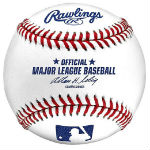 The change has been coming for some time now. How many times have you cringed seeing a base runner bearing down at full speed on a squatting catcher? TV commentators and sports writers have been talking about the dangers involved in home plate collisions and good players have gotten hurt, either trying to make it to home plate, or trying to defend it.
The change has been coming for some time now. How many times have you cringed seeing a base runner bearing down at full speed on a squatting catcher? TV commentators and sports writers have been talking about the dangers involved in home plate collisions and good players have gotten hurt, either trying to make it to home plate, or trying to defend it.
Back in December at the MLB Winter Meetings proposals were being discussed limiting or banning altogether those spectacular confrontations that often take place around home plate between runners and catchers.
In the past it was almost like an NFL play as the catcher set up like an offensive lineman to block the runner from the plate. The runner, no matter what his size, became a fullback and did his best to run over the catcher to score the run.
Now the powers that be at MLB have made moves to bring the situation under control by issuing guidelines, which are actually new rules governing the encounters. Not much changes for the catcher except that he must have the ball in order to make the block.
It’s the potential base runners who are scratching their heads and trying to figure out just how the new ruling applies to them, because it’s not exactly clear.
But it is official. Now we have rule 7.13, which doesn’t ban all collisions at home plate, just the ones that are deemed dangerous, that is, one that puts the players involved at serious risk of injury which is something that no one wants to see.
Rule 7.13 has already been signed off on by the MLB player’s union and will go into effect right away, just in time for the 2014 season operners. What the new ruling is particularly aimed at is preventing a hard running player making for home plate from deliberately targeting a stationary catcher or whoever is covering the plate with the intention of bowling them over at whatever cost and scoring the run.
The meat of the issue is this part “a runner attempting to score may not deviate from his direct pathway to the plate in order to initiate contact with the catcher or any other player covering home plate. A runner violating the rule shall be called out even if the ball is dropped”.
Both the MLB Commissioner’s office and the player’s union have agreed that the rule change will be instituted on a one year trial basis. Tampa Bay’s manager Joe Maddon said, “It’s not a radical departure from what it had been.”




